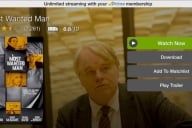You have /5 articles left.
Sign up for a free account or log in.
February is a busy time in the academic hiring cycle. This is when departmental and institutional committees scour resumes and interview candidates for faculty and administrative positions that will typically begin not in the coming weeks (as would be the case with off-campus, non-academic jobs) but for the coming academic year that, depending on the position and campus calendar, begins in July, August, or September.
The good news for academic departments and institutions (and the bad news for job candidates) is that higher ed is a buyer’s market – and has been for a long time: there is just too much talent in the pipeline pursuing too few full-time faculty positions, especially the “good jobs at good institutions” (whatever “good” might mean). Still, hope looms large among aspiring academics.
The peak months of the annual academic hiring cycle provide an interesting opportunity to ask about your own path into academe: how did you get here?
Courtesy of what may be a rising quit lit movement, we know a lot about the people who (often unhappily) leave the professorate (click HERE, HERE, and HERE). We generally know (and talk) less about how they – and we – got here before leaving.
Let’s be honest with one another. Academe is a recruited profession. Ours are recruited careers because the vast majority of individuals who work as faculty and campus administrators did not enter college aspiring to a career in higher education.
Save for the few who had a parent, relative, or neighbor who worked in higher ed, most of us knew very little about careers and life in academe prior to going to college. And as role models, the literary and media personas of academics are mixed, at best. Academics are often secondary characters, typically portrayed as difficult, idiosyncratic, stressed, flawed, and often high strung, even when they have leading roles (thank you, Michael Chabon and Richard Dreyfuss!).
Moreover, when we look at undergraduate intentions and aspirations, the 2016 UCLA Freshman Survey data tell us that undergraduates are interested in specific majors and occupations. They want to study business (15 percent), biology (8 percent), engineering (10 percent), math and computer science (6 percent), nursing (5 percent), and psychology (4 percent), among the various choices for college majors. Fully a fourth (21 percent) consider themselves to be “pre-med” (before encountering organic chemistry!), while 7 percent identify as “pre-law.”
As for career preferences at the beginning of their college experience, students aspire to become business professionals (18 percent), engineers (7 percent), lawyers (4 percent), physicians (10 percent), research scientists (4 percent), and K-12 teachers (7 percent).
In contrast, in fall 2016 a miniscule proportion of entering college freshmen in four-year institutions expressed interest in careers as a college professor (0.4 percent) or a college administrator (0.3 percent). Interestingly, the percentage of freshmen interested in faculty careers is well below the proportion of freshmen who report having a parent who is a college professor (0.8 percent), which clearly undermines any notion of the “family business” as a model for academic recruitment. (See pp. 32-33 of the 2016 UCLA/CIRP report.)
So given what we know about freshman interests and aspirations for academic careers, the big (and personal) question remains: how did you (do I / did we) get here?
In all likelihood, someone (or some persons) “touched” you (us!) during the undergraduate experience. We were recruited. Many of us were tapped at some point in our undergraduate careers by one or more faculty who offered kind words, strong encouragement, and perhaps even timely or strategic opportunities to work by their side. Someone saw promise in us and encouraged us to give thought to a career as a college teacher, a researcher, a scholar – as a professor!
Think about your path from then to now:
- Did you engage with faculty?
- Did you receive thoughtful and effective mentoring into and through your graduate program?
- Were you among the fortunate to secure full-time, tenure track employment for your first faculty position?
- Were you well-prepared for your first faculty position?
- In addition to research skills for your discipline, were you also you able to develop a good portfolio of teaching and advising skills during your time as a graduate student and teaching assistant?
- Did that portfolio serve you well during your first, second, and third years in the classroom and, perhaps, also teaching online?
- Did your graduate training prepare you for the technological technological changes that now affect research, teaching, and learning in your chosen field?
And finally, think about the undergraduates you meet each term who may be the future professorate. Are you offering kind words, strong encouragement, and perhaps even timely or strategic opportunities to work by your side.?
Much as someone saw promise in you and encouraged you to give thought to an academic career, are you offering similar encouragement to some of your students? And if you do provide that encouragement, how do you explain the challenges of and risk in the academic labor market in most disciplines, which has been dire for several decades?
Again, ours is a recruited career. What’s changed over time is not the recruitment process, but the ethics of recruitment given the continuing challenges of the academic labor market and the portfolio of skills essential to be a successful teacher, researcher, scholar -- and professor.


